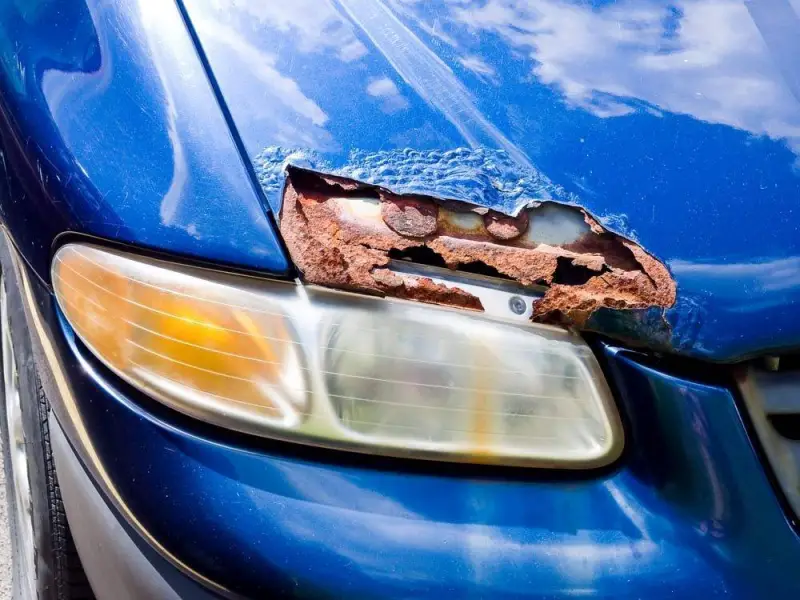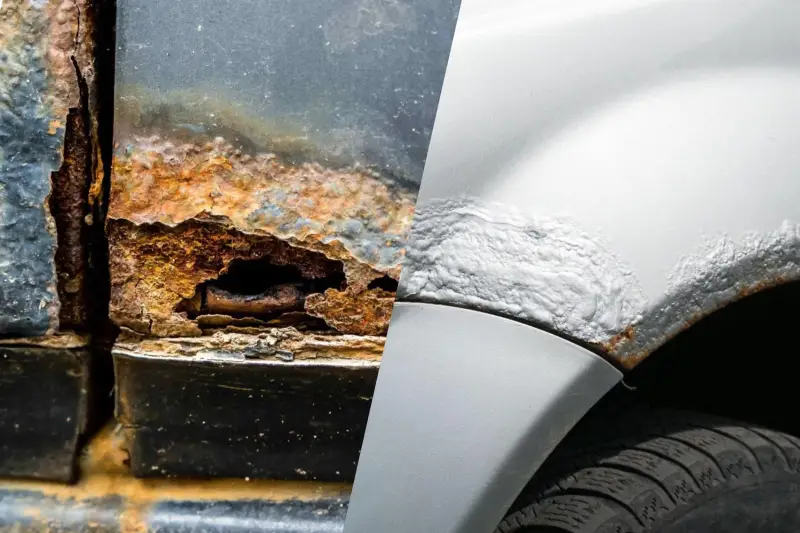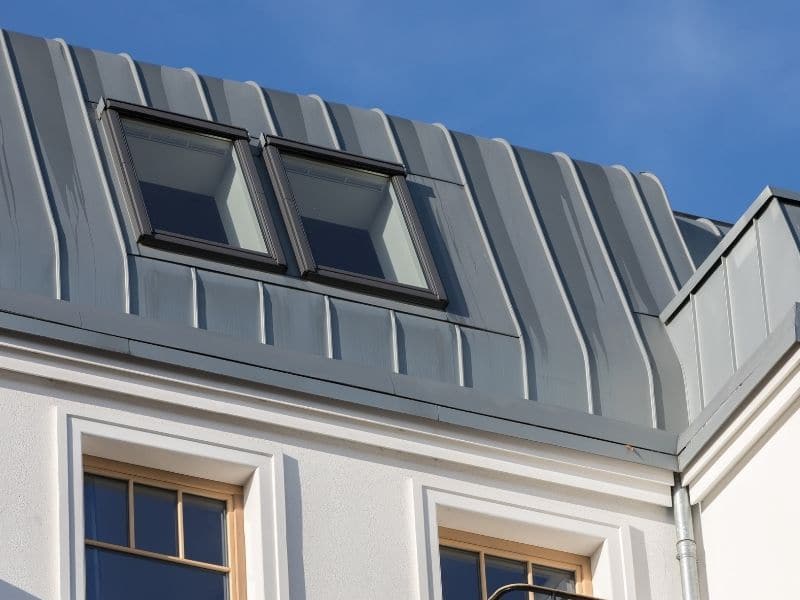Rust is a common issue that affects the longevity and appearance of vehicles. It is a chemical reaction that occurs when iron or steel comes into contact with water and oxygen, leading to the formation of iron oxide, commonly known as rust. The formation of rust on a car can have a significant impact on its resale value and can lead to costly repairs if left unattended for too long. In this post, we will discuss how fast rust can spread on cars and what you can do to prevent it.
The Speed of Rust Spreading on Car
The speed at which rust spreads on a car depends on several factors, including the type of metal used in the car’s construction, the presence of any protective coatings, and the severity of exposure to elements that promote rust formation. For example, cars that are frequently driven in areas with high humidity, such as coastal regions, are more susceptible to rust formation than cars that are driven in dry climates. Additionally, cars that are regularly exposed to road salt during the winter months can also develop rust more quickly, as salt can speed up the corrosion process.
The Essentials of Rust
It is essential to address rust as soon as it is noticed, as it can quickly spread and cause significant damage to your car. If the rust is only superficial and has not yet penetrated the metal, it can often be removed with sandpaper or a specialized rust remover. However, if the rust has already begun to penetrate the metal, it may be necessary to replace the affected parts to prevent further damage. Regular washing and waxing can also help prevent rust from forming on your car. Additionally, keeping your car dry, especially in areas where rust is likely to form, can also help slow down the rusting process.
How Fast Rust Spreads On Cars Overview
First of all, the type of metal used in the car’s construction plays a big role in how quickly rust can spread. For example, cars with steel bodies tend to rust faster than cars with aluminum bodies. That being said, if the steel is treated with a rust-resistant coating, this can help slow down the spread of rust.
Another factor to consider is the car’s exposure to elements that promote rust formation. For example, if you live in a humid coastal area, your car is more likely to rust quickly due to the high levels of moisture in the air. On the other hand, if you live in a dry desert climate, your car is less likely to rust quickly. It’s also important to note that cars that are regularly exposed to road salt during the winter months can also develop rust more quickly, as salt can speed up the corrosion process.
So, how can you slow down the spread of rust on your car? There are a few things you can do! First, wash and wax your car regularly to help protect the paint and metal surfaces. Second, park your car in a dry, covered area to keep it protected from the elements. Finally, consider using rust-resistant coatings or rust inhibitors to help slow down the rusting process.
Figuring out how fast rust spreads on cars is key to keeping your ride looking great for years to come. There are a variety of factors that can affect the speed at which rust spreads, but there are also plenty of things you can do to slow it down. So go ahead, take care of your car and enjoy the ride!
How Fast Rust Spreads On Cars Comparison Table
To help prevent rust from spreading quickly on cars, there are several permanent methods that can be used. These methods use different ingredients and techniques to provide long-lasting protection against rust formation. Let’s take a closer look at each method and compare their ingredients, benefits, and drawbacks.
- Rust inhibitors: Rust inhibitors are chemical compounds that are added to the metal surfaces of a car to prevent rust from forming. Some rust inhibitors are sprayed directly onto the metal, while others are mixed into the paint or primer used to finish the car. Common ingredients in rust inhibitors include zinc, phosphates, and inhibitors such as nitrates and chromates.
- Zinc primer: Zinc primer is a type of paint that is applied to the metal surfaces of a car before the final paint is applied. The primer contains zinc, which acts as a sacrificial anode, corroding before the metal underneath. This helps to slow down the spread of rust and protect the metal from further corrosion.
- Galvanization: Galvanization is a process where the metal surfaces of a car are coated with zinc to protect against rust. This method is often used on steel parts, such as car frames and suspension components, to provide long-lasting protection against rust.
- Powder coating: Powder coating is a process where a dry powder is applied to the metal surfaces of a car and then cured to form a hard, protective layer. The powder used in powder coating typically contains a mixture of resin, pigment, and other ingredients that help to prevent rust from forming.
| Method | Ingredients | Benefits | Drawbacks |
|---|---|---|---|
| Rust inhibitors | Zinc, phosphates, nitrates, chromates | Easy to apply, can be added to paint or primer | Can be expensive, may not provide as much protection as other methods |
| Zinc primer | Zinc | Protects metal from corrosion, can be painted over | Must be reapplied if damaged, may not provide as much protection as other methods |
| Galvanization | Zinc | Provides long-lasting protection against rust, can be used on steel parts | Can be expensive, may not be suitable for smaller parts |
| Powder coating | Resin, pigment, other ingredients | Provides a hard, protective layer, can be used on a variety of metal surfaces | Can be expensive, may not be suitable for smaller parts |
There are several permanent methods that can be used to prevent rust from spreading quickly on cars. Each method has its own unique ingredients, benefits, and drawbacks, and it is important to choose the right method for your car based on your specific needs and preferences. By using one of these methods, you can protect your car from rust and keep it looking great for years to come!

Equipment to Work With How Fast Rust Spreads on Cars
When working to prevent or repair rust on a car, there are several tools and equipment that can be useful. Here’s a table of some of the most commonly used equipment for rust prevention and repair:
| Equipment | Description |
|---|---|
| Sandpaper | Used to remove rust and surface corrosion from metal surfaces. |
| Wire brush | Used to remove rust and surface corrosion from metal surfaces. |
| Rust converter | A chemical that is applied to rusted metal surfaces to convert rust into a protective coating. |
| Primer | Used to prepare metal surfaces for painting and provide a surface for paint to adhere to. |
| Paint | Used to protect metal surfaces from rust and weathering. |
| Paint gun | Used to apply paint evenly and quickly to metal surfaces. |
| Body filler | Used to fill in dents, dings, and rust holes in metal surfaces. |
| Respirator | Used to protect against inhaling harmful fumes and particles while working with rust converter, primer, paint, and body filler. |
| Gloves | Used to protect hands from harsh chemicals and rough surfaces while working with rust converter, primer, paint, and body filler. |
| Protective eyewear | Used to protect eyes from flying debris and harsh chemicals while working with rust converter, primer, paint, and body filler. |
Having the right equipment can make a big difference when it comes to preventing or repairing rust on a car. By using these tools and equipment, you can work more effectively and efficiently to keep your car rust-free and looking great for years to come!
Step by Step Instruction on How to Make How Fast Rust Spreads on Cars
- Clean the metal surfaces: Clean the metal surfaces of your car thoroughly to remove any dirt, grime, or surface corrosion. This will help to ensure that the rust inhibitors, primer, paint, or other rust prevention methods you use will be able to stick to the metal effectively.
- Apply rust inhibitors: Apply rust inhibitors to the metal surfaces of your car using a brush, roller, or spray can. Rust inhibitors can be added to paint or primer, or they can be applied directly to the metal. Be sure to follow the manufacturer’s instructions for application.
- Apply zinc primer: If desired, you can apply a zinc primer to the metal surfaces of your car. Zinc primer contains zinc, which acts as a sacrificial anode, corroding before the metal underneath. This helps to slow down the spread of rust and protect the metal from further corrosion.
- Galvanize: If desired, you can have the metal surfaces of your car galvanized. This is a process where the metal is coated with zinc to protect against rust. Galvanization is often used on steel parts, such as car frames and suspension components.
- Powder coat: If desired, you can have the metal surfaces of your car powder coated. Powder coating is a process where a dry powder is applied to the metal surfaces of a car and then cured to form a hard, protective layer. Powder coating typically contains a mixture of resin, pigment, and other ingredients that help to prevent rust from forming.
- Paint: If desired, you can paint the metal surfaces of your car with a high-quality automotive paint. Automotive paint is designed to provide long-lasting protection against rust and weathering.
- Maintain your car: To keep rust from spreading quickly on your car, it’s important to maintain it regularly. This includes washing your car regularly, checking for rust and surface corrosion, and fixing any damage as soon as possible.
By following these steps, you can help to prevent rust from spreading quickly on your car and keep it looking great for years to come!

F.A.Q.
What causes rust on cars?
Rust on cars is caused by exposure to moisture and oxygen, which can cause the metal to corrode. This can be due to factors such as weather conditions, exposure to salt, and poor maintenance.
How can I tell if my car has rust?
Rust on a car can be identified by its characteristic red-brown color and flaky, crusty appearance. You can also check for rust by tapping on the metal surfaces of your car with a hammer, listening for a dull thud, which may indicate rust and corrosion beneath the paint.
How can I prevent rust from spreading on my car?
To prevent rust from spreading on your car, it’s important to keep the metal surfaces clean and dry, to maintain your car regularly, and to check for rust and surface corrosion regularly. You can also use rust inhibitors, primer, paint, or other rust prevention methods to slow down the spread of rust.
Can rust be removed from a car?
Yes, rust can be removed from a car, although it may require sanding, wire brushing, or the use of rust converter to remove the rust and surface corrosion. Once the rust has been removed, it’s important to prime and paint the metal surfaces to prevent rust from forming again.
How long does it take for rust to spread on a car?
The speed at which rust spreads on a car depends on a variety of factors, including the type of metal, the environment, and the level of maintenance. In some cases, rust can spread quickly and cause significant damage in a matter of months, while in other cases, it may take years for rust to become a problem.
How much does it cost to fix rust on a car?
The cost of fixing rust on a car can vary widely depending on the extent of the damage and the methods used to repair it. In some cases, simple rust repairs can be done at home for a few hundred dollars, while more extensive rust repairs may require professional body work and cost several thousand dollars.



Leave a Reply